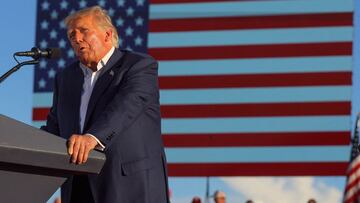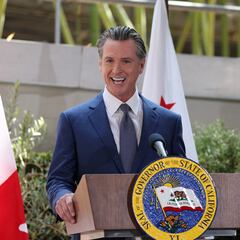How much did Donald Trump’s company charge Secret Service agents to protect him and his family?
Newly obtained expense records show the former president’s Trump Organization milked taxpayers for Secret Service agents to stay overnight while on-duty.


Another “shocking” revelation about the former president has been unveiled. The House Oversight Committee released documents on Monday that show the Trump Organization charged the Secret Service “exorbitant rates” for security details to stay at Trump hotels while protecting him and members of his family.
The documents obtained by the panel show the Secret Service paid in some cases almost double the hotel’s average rate and quintuple the government-approved nightly rate. Over the four years of expenses reviewed, covering up to September 2021, the Secret Service was charged for an amount that “appears to exceed $1.4 million of taxpayer money.”
Also see:
Trump Organization charged Secret Service “excessive nightly rates”
The newly released expense reports show that the Trump Organization in at least 40 cases billed the Secret Service far higher amounts than those permitted. In a statement from New York Democratic Representative Carolyn Maloney, the committee’s chairwoman, the Secret Service was billed as much as $1,185 a night, five times the government’s approved rate.
In one particular case from March 2017, Eric Trump stayed at the formerly Trump International Hotel in DC, now the Waldorf Astoria Washington DC, with a security detail. The Trump Organization charged the Secret Service a nightly rate of $1,160. This was nearly double the average rate the hotel was charging in 2017 and far in excess of the $242 permitted by the government.
This contradicts what the former president has claimed in the past. His son Eric even stated that any services rendered to the Secret Service or other government agencies at Trump-properties “were either provided at cost, heavily discounted or for free.”
Trump Hotel in DC raised rates in 2017 for all guests above industry average
Furthermore, the hotel began charging rates almost 25 percent more than the competition after the Trump assumed the presidency. According to reporting by Wall Street Journal and the Washington Post guests had paid an average of $652.98 a night in 2017 based on documents posted by the General Services Administration.
Other luxury hotels such as the Four Seasons, Hay-Adams and Willard were charging an average of $495 a night at that time. The Trump International Hotel in DC also made an unexpected profit during the first four months of that year.
Instead of booking predicted loss of $2.1 million the former president’s then hotel made a profit of $2 million. This came despite having an occupancy rate over a third less than the rest of the industry.
According to newly-released records, Trump hotels and properties charged the Secret Service as much as five times more than the government rate for some accommodations.
— CBS Mornings (@CBSMornings) October 18, 2022
Over a four-year period, that amounted to $1.4 million in taxpayer money that went to the Trump Organization. pic.twitter.com/x07nWtBdpp
Concerns about the former President’s conflicts of interest and efforts to profit off the presidency
“The exorbitant rates charged to the Secret Service and agents’ frequent stays at Trump-owned properties raise significant concerns about the former President’s self-dealing and may have resulted in a taxpayer-funded windfall for former President Trump’s struggling businesses,” wrote Rep. Maloney.
Related stories
The chairwoman says that members still have not received complete information on nightly rates or the total amount spent by the agency despite seeking records for the past two years from the Secret Service. She has called on the Secret Service Director Kimberly Cheatle to comply by 31 October 2022 with the committee’s request for information.
“Given the longstanding concerns surrounding the former President’s conflicts of interest and efforts to profit off the presidency, the Commitee has a strong interest in obtaining a complete accounting of federal government spending at Trump properties. The Committee continues to examine potential legislation to prevent presidential self-dealing and profiteering, as well as to curb conflicts of interest by ensuring that future presidents are prevented from exercising undue influence on Secret Service spending,” she wrote.

